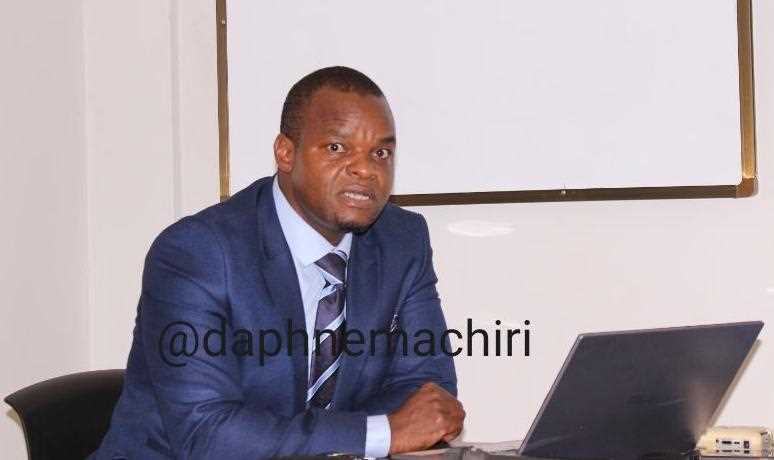Munyaradzi Doma
The City of Harare faces a major challenge of eliminating cholera by 2028 because the rehabilitation works which are supposed to be carried out to repair the dilapidated water and sewer system will require huge financial investments, a top Harare medical official has said.

Speaking at recent media café organised by the Health Communicators Forum of Zimbabwe and Humanitarian Information Facilitation Centre this Thursday, Dr Michael Vere, Harare City Epidemiologist said while the target of eliminating cholera by 2028 can be achieved, it is “a mammoth task.”
In 2018, Zimbabwe formulated a Cholera Elimination Road map covering 2018-2028 and the goal is to eliminate cholera in the country by 2028.
Dr Vere’s statements come in the wake of Harare having three confirmed in Budiriro 1 and 11 suspected cases amid growing fears that figures could be climbing towards pandemic levels.
Nationally 536 cases have been recorded since the disease was confirmed in the country with 503 recoveries and now four deaths.
He said in order to eliminate cholera, there are several determinants such as water supply, sewer upgrade, overcrowding in certain areas, hygiene practices and health education which need to be addressed.
“”What is required to eliminate this problem are things which require a lot of money, like if we talk of upgrading the sewer system, we are talking of millions of US dollars.
“If we are talking about providing more safe water for residents or citizens of Zimbabwe, we are also talking about a lot of money as well.
https://zimbabwenow.co.zw/articles/2730/cholera-fears-grip-zim-as-chegutu-records-2-cases
De Vere said the city is taking it one step at a time.
“But at the same time, there are several efforts which are being done so that we achieve this target.
“For example Harare City is partnering with partners to improve the water situation. The City has partnered Nanotech so as to reduce the amount of chemicals to treat the water. That will help us in terms of provision of water to our residents. On sewer, there are also other efforts being done to improve our system.
“In terms of trying to achieve our target for 2028, we might all agree that it is a mammoth task, its capital intensive to achieve it but obviously setting those targets it means people have set down and discussed and found that this is achievable so of course it is difficult but we are making efforts.
“Obviously it’s a difficult task to achieve that target but remember we have got 5 years to go, so time is still there for us to do something about the situation,” said Dr Vere.
He went on to say that in the event of a massive cholera outbreak hitting the capital, they are prepared.
Dr Vere said before the country had recorded any case, they had already started preparations, going to clinics giving awareness to their health care workers on how to handle patients suffering from the disease.
He also revealed that they had equipped their clinics with all the cholera kits and they were also giving aqua tabs to residents to put in their drinking water which is one of the possible main sources of cholera.
https://zimbabwenow.co.zw/articles/1357/harare-on-cholera-alert-as-diarrhoea-cases-spike
Speaking at the same media science café, Director of Harare Residents Trust Precious Shumba said while the city is saying they are making some efforts to achieve the said targets, facts on the ground show that this could remain a pipeline dream.

He said massive corruption happening in the local authority and failure to prioritise projects has led to the situation the city finds itself in.
“The elimination (of cholera) should not be placed on the burden of local authorities, this is a national crisis requiring an allocation in the national budget where they actually focus on dealing with issues related to the water distribution network across the country.
“It is the water distribution network that has collapsed so local authorities can set targets and targets, they will never achieve them for as long as they have not increased their revenue sources, they have not expanded or they have not become innovative in how they administer their public resources.
“Priority is addressing the water challenge so the target are just a mirage, they will never be achieved based on current implementation matrix.
“Are they (city authorities) addressing the question of water delivery, are they replacing water underground pipes, are they plugging leakages of untreated sewer, are they improving the efficiencies of the sewer treatment plant?” asked Mr Shumba.
Mr Shumba went on to give several examples of areas in Harare where sewage has been flowing for years and council is yet to rectify the problem.
He revealed that in the case of Mbare Market, a health time bomb is ticking as there are no functioning toilets and such filthy conditions have become the norm.
Shumba added that as long as all water sanitation and hygiene issues are not addressed, then the council can as well kiss goodbye their target of eliminating cholera by 2028.
There are fears that the country could have a repeat of the 2008 and 2018 outbreaks when thousands of people died as a result of cholera epidemics.
Leave Comments